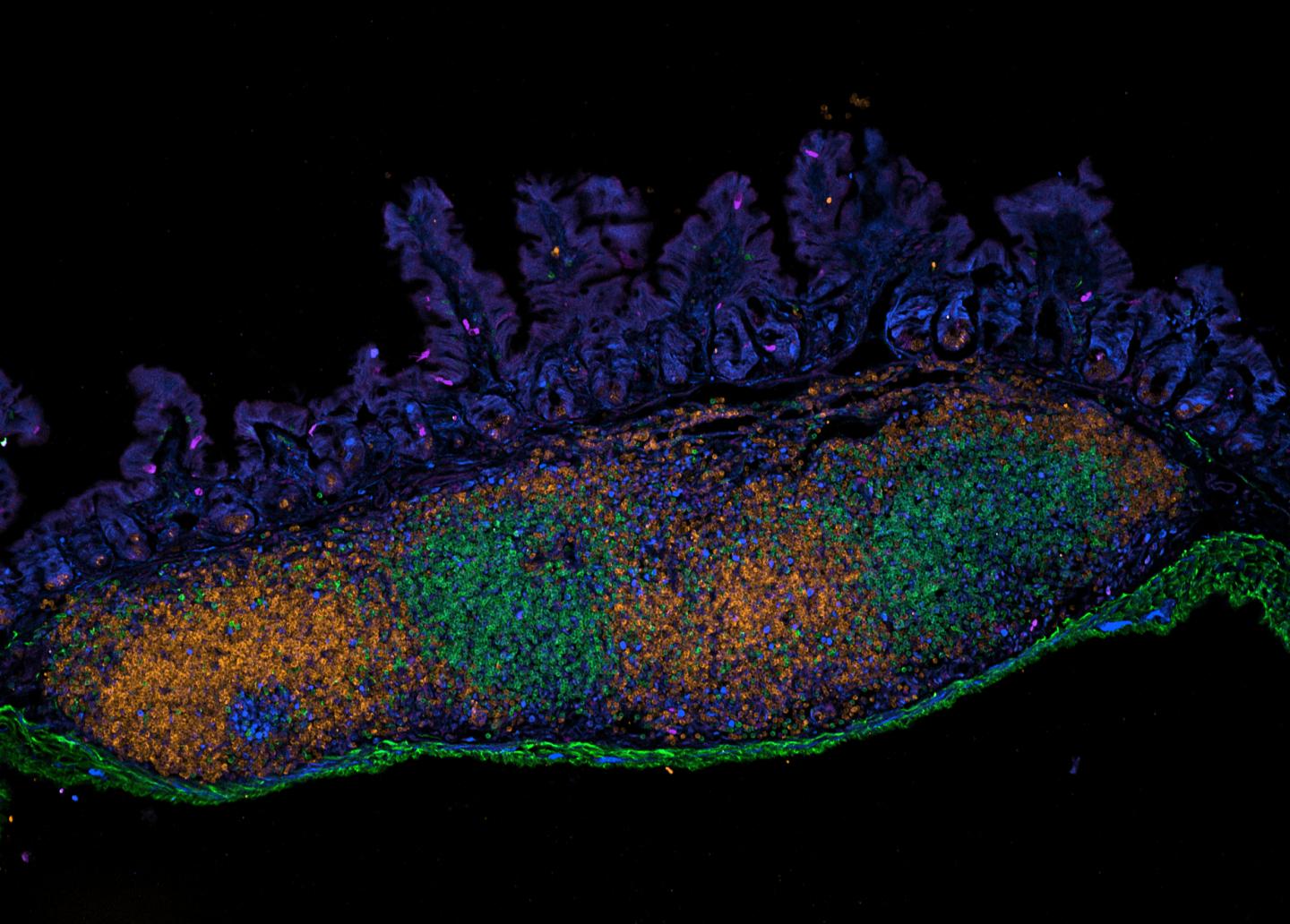Fecal transplants from young to aged mice rejuvenates the immune system in the gut of aged mice

Credit: Marisa Stebegg, Babraham Institute.
Key points:
- Faecal transplants from young mice replenishes the gut microbiome and boosts the gut immune system in older mice.
- The study demonstrates that the decline in the gut immune response due to age is not irreversible and that it can be boosted in older individuals.
- The gut microbiome could be a target for the treatment of a range of age-associated symptoms to facilitate healthy ageing.
Faecal transplants from young to aged mice can stimulate the gut microbiome and revive the gut immune system, a study by immunologists at the Babraham Institute, Cambridge, has shown. The research is published in the journal Nature Communications today.
The gut is one of the organs that is most severely affected by ageing and age-dependent changes to the human gut microbiome have been linked to increased frailty, inflammation and increased susceptibility to intestinal disorders. These age-dependent changes to the gut microbiome happen in parallel with a decrease in function of the gut immune system but, until now, it was unknown whether the two changes were linked.
“Our gut microbiomes are made up of hundreds of different types of bacteria and these are essential to our health, playing a role in our metabolism, brain function and immune response,” explains lead researcher Dr Marisa Stebegg. “Our immune system is constantly interacting with the bacteria in the gastrointestinal tract. As immunologists who study why our immune system doesn’t work as well as we age, we were interested to explore whether the make-up of the gut microbiome might influence the strength of the gut immune response.”
Co-housing young and aged mice (mice naturally like to sample the faecal pellets of other mice!) or more directly performing faecal transfer from young to aged mice boosted the gut immune system in the aged mice, partly correcting the age-related decline.
“To our surprise, co-housing rescued the reduced gut immune response in aged mice. Looking at the numbers of the immune cells involved, the aged mice possessed gut immune responses that were almost indistinguishable from those of the younger mice.” commented Dr Michelle Linterman, group leader in the Immunology programme at the Babraham Institute.
The results show that the poor gut immune response is not irreversible and that the response can be strengthened by challenging with appropriate stimuli, essentially turning back the clock on the gut immune system to more closely resemble the situation in a young mouse.
The results of the study have relevance for treating age-related symptoms, confirming a link between the effects of the ageing immune system and age-associated changes in the gut microbiome. By demonstrating the effectiveness of interventions that have a positive impact on the composition of the gut microbiome, this research suggests that faecal transplants, probiotics, co-habitation and diet might all prove to be ways to facilitate healthy ageing.
###
Media Contact
Louisa Wood
[email protected]
Related Journal Article
http://dx.




